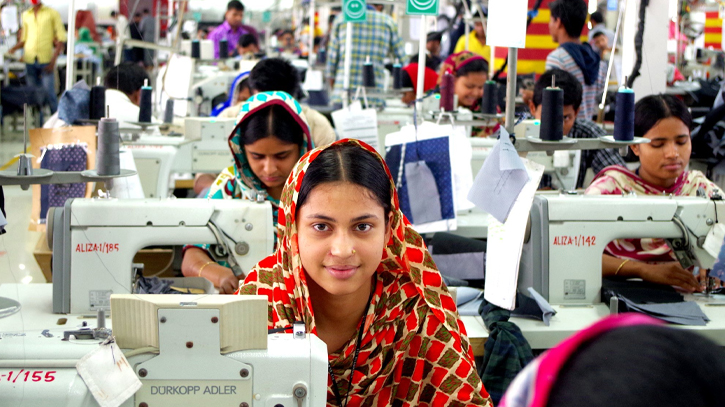
Photo: Collected
Owners of garment factories are optimistic that the ongoing labor unrest will subside by Saturday and are planning to resume operations with legitimate workers. They believe the unrest is largely fueled by outsiders, with minimal internal issues affecting the factories.
Business leaders assert that the agitators are external actors rather than actual garment workers. Despite assurances from the Bangladesh Garment Manufacturers and Exporters Association (BGMEA) President Khandaker Rafiqul Islam that all garment factories would reopen on Thursday (September 5) following security assurances from law enforcement agencies, protests continued.
Currently, around 170 factories are on the verge of closure due to unrest in industrial areas like Ashulia, Savar, and Gazipur, according to BGMEA President Khandaker Rafiqul Islam.
However, the Bangladesh Knitwear Manufacturers and Exporters Association (BKMEA) believes reopening factories by Thursday will be challenging due to inadequate security.
Fazle Ehsan Shamim, Vice President of BKMEA, told the Daily Messenger, “We still lack adequate security, so we plan to reopen factories on Saturday with genuine workers. The workers are concerned about job security due to factory closures and are eager to return to work.”
Shamim emphasized that the agitators are outsiders seeking to exploit the political climate. He noted that the previous government was supportive of the garment sector, which has thrived over the past 15 years. However, Shamim fears that the ongoing unrest could severely impact exports, tarnish the country’s image, and drive buyers to competitors like India and Sri Lanka. Additionally, increased air shipment costs are exacerbating the sector’s financial woes.
BGMEA President Rafiqul Islam confirmed that law enforcement agencies have assured safety in the industrial zones, allowing factories to reopen as early as Thursday if conditions improve. He stressed that the unrest primarily involves outsiders, with minimal internal factory issues.
To address the situation, Local Government, Rural Development, and Cooperative Adviser AF Hasan Arif emphasized the need for strict action against those causing unrest to protect factories, workers, and the national economy. Speaking after an urgent meeting at the Ministry of Home Affairs on Wednesday (September 4), Arif stated, “The real workers are not responsible for the violence. It is the outsiders who are causing disruptions. We need to address this issue promptly.”
The meeting, chaired by Home Affairs Adviser Lieutenant General (Retd.) Md. Jahangir Alam Chowdhury, was attended by various advisers including Asif Nazrul (Legal), Farida Akhtar (Fisheries and Livestock), Adilur Rahman (Industries), and Asif Mahmud Sajib Bhuiyan (Labor and Employment).
The ongoing unrest is poised to impact the country’s exports, which are a significant source of foreign currency. The situation may also affect import capabilities due to a potential rise in the dollar crisis. According to Export Promotion Bureau (EPB) data, the ready-made garment (RMG) sector experienced a 2.86% year-on-year increase in earnings, totaling $43.85 billion during the July-May period of FY24. Conversely, home textiles saw a negative growth of 24.29%, dropping from $1.02 billion to $776.06 million in the same period. The country’s foreign reserves have also declined, with figures falling from $32.22 billion in January to $30.96 billion in April.
Meanwhile, a sharp rise in labor unrest led to the closure of 60-70 garment factories on Tuesday. This followed a joint operation by the army and police in the industrial zones of Savar, Ashulia, and Gazipur.
The unrest, which included protests and vandalism, prompted the security forces to step in to restore order.
Chief Adviser Prof. Muhammad Yunus expressed his commitment to supporting the growth of Bangladesh’s industrial sector.
During a meeting with business leaders, including Mahbubur Rahman, President of the International Chamber of Commerce, Bangladesh, at the state guesthouse Jamuna, Prof. Yunus underscored his dedication to industrial protection and growth.
Prof. Yunus also called for labor reforms aligned with International Labour Organization (ILO) standards to attract more global investment and orders.
During the meeting, business leaders expressed concerns about recent unrest in the garment and pharmaceutical sectors. They suggested that the vandalism might have been incited by external groups, including those abroad. They emphasized the need for enhanced security in industrial areas to protect the country's image.
Messenger/Disha








